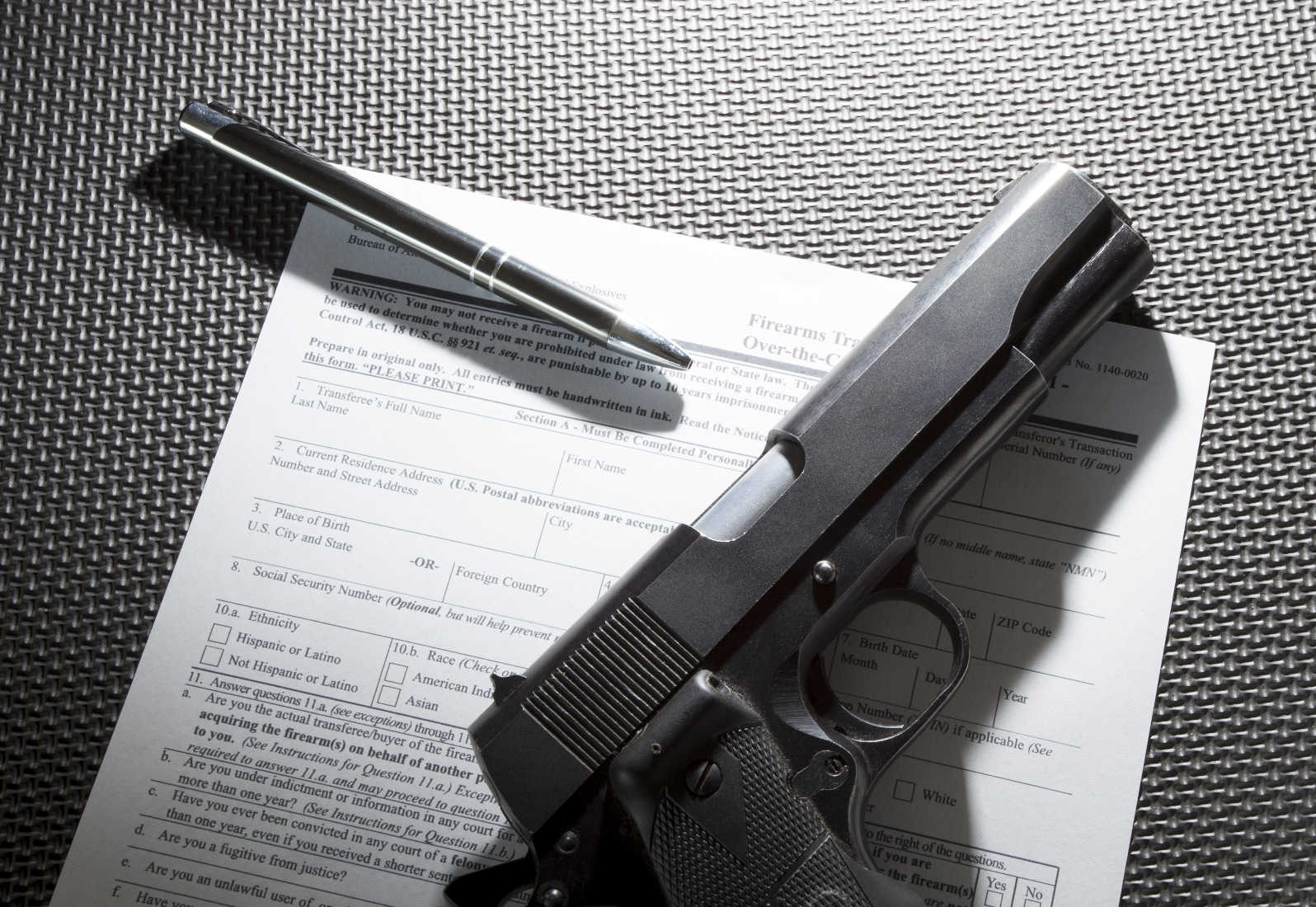By: José Niño
Gun control advocates are notorious for repeating the same myths about firearms, their operation, and the policies they want to regulate their usage. In this guide, we’ve compiled the most common anti-gun arguments and explained why they’d be ineffective in preventing gun violence and why they also violate the Constitution.
Don’t forget to also read Part 1 and Part 2 of this series.
Argument:
“People should be forced to get a license to own a firearm, just as they do to drive a car.”
Rebuttal:
Why It’s Ineffective and Flawed:
Licenses Punish Lower-Income People
Licenses present a barrier to entry for humble gun owners. Licensing costs money and time, something people of working-class and lower-income levels do not have in abundance. Criminals, of course, couldn’t care less about attaining a license to possess a firearm with which they intend to commit crimes.
According to a report from the U.S. Department of Justice, 10 percent of criminals acquired their firearms from conventional retailers. This same reported added, “More than half (56%) of prisoners who possessed a firearm during their offense had either stolen it (6%), found it at the scene of the crime (7%), or obtained it off the street or from the underground market (43%). Fewer than 1% had obtained the firearm at a gun show (0.8%).”
For law-abiding gun owners, this kind of asymmetry can prove deadly, since criminals know that that the overwhelming majority of law-abiding citizens will likely be disarmed in areas with highly restrictive gun control. In Baltimore, 343 were killed in 2017; 88 percent of those murders involved firearms according to Baltimore Police data; 85 percent of the 118 suspects that police identified had prior criminal records. According to police spokesman, T.J. Smith, the “overwhelming majority of them (guns) are going to be illegally possessed.” In Pittsburgh, nearly 80 percent of gun crimes involved unlawfully owned guns, specifically guns that belonged to other people.
Licensing Leads to Gun Registries
Licensing is, at the very least, a steppingstone toward gun registration. Licensing typically involves a process in which the government keeps informational files on record for certain individuals. Sensitive personal and medical information could fall into the hands of unscrupulous government officials and/or hackers in today’s increasingly digital world. Such infringements on our rights affect not only our ability to defend ourselves, but also put our privacy at risk. We must remember that gun registration or any policy that leads to registration is a harbinger for the eventual confiscation of firearms.
In 1938, Adolf Hitler signed the Gun Control Act into law which prohibited Jews from working in the firearms industry and banned .22 caliber hollow-point ammunition. Meanwhile, Nazi Party members saw gun restrictions on them slightly loosened. As a result, both the government and pro-Nazi sympathizers could prey on the Jewish population at will.
This only half the story, though. The previous Weimar government passed gun registration. Weimar leadership justified this law’s passage under the banner of public order. This was in a time when Nazis and Communists were clashing in the streets of Germany.
Little did the Weimar government know that their gun control measures would be exploited and built upon by the succeeding Nazi government to carry out one of the worst genocides in human history.
Unbeknownst to the Weimar government, their gun control framework would later be exploited by the Nazis to disarm the Jews and subject them to one of the most horrific cases of genocide in human history.
Why It’s Unconstitutional:
The right to bear arms is enshrined in our federal constitution and in most state constitutions. By licensing this sacred right, we turn gun ownership into a state-controlled privilege, which is a clear violation of constitutional law.
If we believe the Bill of Rights is to be truly respected, do we also support the licensing of newspaper columns, political speeches, and prayers at church? By conceding ground on the Second Amendment, we open a Pandora’s Box of abuses for the enemies of freedom to exploit. It is crucial to understand the difference between rights and privileges. One does not need the government’s permission to exercise the rights enshrined by the Constitution.
José Niño is a Venezuelan-American political activist writing from Fort Collins, Colorado. Contact him at [email protected].

